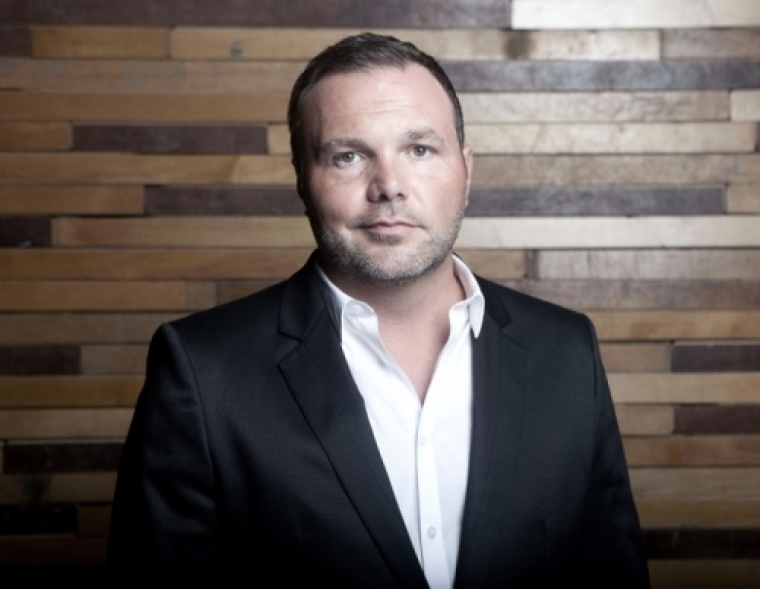

The Treaty of Waitangi is a polarising topic in New Zealand. Some believe it has little relevance today. Others see it as a vital document which continues to inform our nation's ongoing story. Some view the Treaty as an outdated agreement that facilitates greed, while others are confused by why we would commemorate it each year.
February 6 this year marks the 175 anniversary of the signing of the Treaty of Waitangi – four simple paragraphs which represent the coming together of different cultures in partnership.
Sounds straightforward... right?
Since its inception the Treaty of Waitangi has sparked debate, conflict and controversy. Even within the Church there is a variety of opinions.
Why should Christians care about the Treaty of Waitangi? What relevance does a 175 year old document have for today's Church?
Understanding the Church's role in the Treaty's creation
Long before the Treaty of Waitangi was drafted God was at work. In a pub in London in 1799 a group of Christians were so motivated to share their faith that they formed a new movement – the Church Missionary Society – with the express purpose of reaching communities around the world with the good news about Jesus. This influential group changed their own community. Key member William Wilberforce was a critical player in abolishing slavery in the British Empire. Spurred on by their desire to see social justice and evangelism paired together, these men were supporters and friends of the missionaries who first came to New Zealand in 1814.
The early missionaries were among the first European settlers. However, it was not all smooth sailing. By 1837 missionary Henry Williams wrote about the need for the British Government to intervene to help stem the effects of, 'iniquity committed by a lawless band daringly advancing in wickedness and outrage, under the assurance that there is no law in New Zealand'. People were hungry for money and land. The missionaries themselves struggled too. As sinners they sometimes did a less-than-perfect job of representing their faith.
Briton Edward Gibbon Wakefield and the New Zealand Company led the charge to privately colonise New Zealand. This plan was initially opposed by the British Crown, which had decided there were already enough colonies, and by the missionaries, who feared aggressive colonisation would bring about injustice against Maori.
In 1839 the British Government was forced to intervene when the New Zealand Company sent a ship loaded with trinkets to New Zealand to barter for land. Land grabbing and lawlessness was getting out of control. Rumours France had plans to annex New Zealand also accelerated plans. A treaty was needed to bring clarity and ensure protection for Maori, whose way of life and assets were becoming increasingly vulnerable.
At this point the Church took a crucial role in facilitating peace and advocating for a fair and reasonable solution. Missionaries were involved in translation of the Treaty and encouraged Maori that signing was in their best interests.
The Treaty was seen as a way for Maori to gain protection and secure their access and ownership of land in the midst of the wave of new migrants all looking for a patch of New Zealand land to call their own. For Christians in early New Zealand the Treaty was initially viewed a natural extension of their faith in Christ and belief in caring for the vulnerable.
Understanding the Church's role in the Treaty's fall
Up until this point the interests of the British Crown and the missionaries were similar – neither desired to see the exploitation of the Maori people and the Treaty was drafted in order to provide protection.
Sadly, what followed was a massive departure from these early aims. In 1846 Earl Grey instructed Governor George Grey to identify all the New Zealand land not 'actually occupied' by Maori, claiming it as belonging to the Crown. On hearing this missionary Henry Williams, who had helped translate the Treaty, wrote in disgust, 'at the attempted violation of the Treaty'. This directive broke his trust in the Crown and he vowed never to defend the Crown's honour to Maori again.
The situation worsened and the true spirit of the Treaty was lost as New Zealand society deteriorated – eventually breaking into war.
Where was the Church in all of this? Historian Allan Davidson writes:
'The Church was certainly complicit in land alienation in the nineteenth century both actively and passively. Where was the Church's voice when the legislation was passed in the 1860s that resulted in confiscations? Where was the Church voice when the Native Land Court was used to wrest land from Maori hands? Where was the Church voice when the Maori King and Te Kotahitanga protested against the loss of land? Where was the Church voice when Te Whiti and Tohu and their followers were trying to defend their land?'
Understanding the Church's opportunity to engage
Thankfully the Treaty of Waitangi Act was formed in 1975 to address the injustices of the past 140 years. Since that time the government has been involved in settling claims of Treaty breaches. It has been a long process.
When we ponder the gospel values which spurred on that famous group of social reformers back in 1799 we notice key themes – the pursuit of justice, care for the vulnerable, passion for following Christ and obedience to God's word, the Bible.
When we look back at the involvement of Christians in the creation of the Treaty we see repetition of these themes. We can acknowledge the imperfection of these believers as they lived out these values, but the fact remains – these were men and women who took action, who engaged with their culture, who sought to contend for justice and fight for the gospel.
Mark Grace is a Kiwi Christian of Pakeha and Maori descent. In his article 'Faith and Reconciliation: Treaty Settlements and the role of the Church' he encourages the New Zealand Church to take an active role in the Treaty settlement process:
'What would happen if leaders from a local church, local ministers' groups or regional denominational groups went to local Iwi leaders and asked how they could be served practically in their Treaty settlement processes? Could churches provide accommodation and hospitality, or people to serve at Hui or functions? We are accustomed to having intercessory prayer for people's health, overseas conflicts, mission teams etc. Could you ask an individual to update the church on the settlement process and to pray for local Iwi and leaders?
One of the best, simplest things we can do as Christians in relation to the Treaty settlement process is to encourage the good. There are extreme voices on both sides of the process – some arguing that Maori are asking for too little or taking too much. As the people of God, let's salt the public conversation with redemptive stories.'
Maybe your church could think about how it might honour the true spirit of the Treaty this Waitangi Day? Maybe you could pray about ways to engage with the issue?
Why should the Church care more about the Treaty of Waitangi?
Because of what God requires of his people, from Micah chapter 6, verse 8: 'To act justly, and to love mercy and to walk humbly with your God.' True faith in God is not just lip-service or repetition of empty rituals. True faith and true righteousness is about heartfelt obedience as a humble response to God's grace. True faith involves the love of justice and the pursuit of mercy – two essential ingredients in the Treaty of Waitangi.
Historical details and facts are sourced from the book Our Story: Aotearoa - The story of mission in New Zealand through the lens of the New Zealand Church Missionary Society, a collection of articles by various authors, edited by Sophia Sinclair. It is worth a read for more detailed analysis of the Church, mission in New Zealand and the Treaty.
Sophia Sinclair has qualifications in English, Theatre and Journalism. She is a Kiwi living in Sydney with her husband Andrew and their son Guy.
Sophia Sinclair's previous articles may be viewed at http://www.pressserviceinternational.org/sophia-sinclair.html